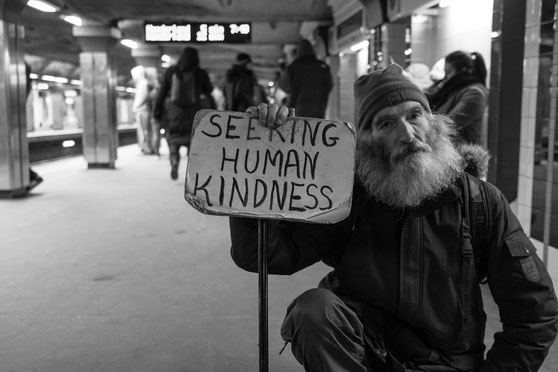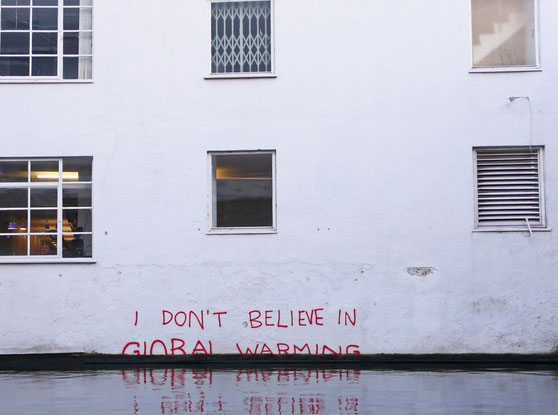Will Germany finally see some much-needed change with the newly elected coalition? politics | opinion | germany | media L-R | Volker Wissing (FDP) | Annalena Baerbock (Green) | Christian Lindner (FDP) | Robert Habeck (Green) Is Christian Lindner's...
<?xml version="1.0"?>Will Germany finally see some much-needed change with the newly elected coalition?
politics | opinion | germany | media
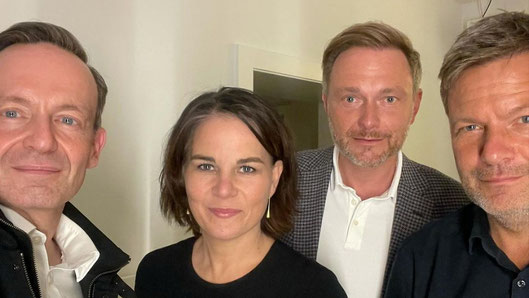 L-R | Volker Wissing (FDP) | Annalena Baerbock (Green) | Christian Lindner (FDP) | Robert Habeck (Green)
L-R | Volker Wissing (FDP) | Annalena Baerbock (Green) | Christian Lindner (FDP) | Robert Habeck (Green)
Is Christian Lindner's influence in the upcoming discussions about who will form the new German government as overinflated as his ego, or does he really have all the power? The election campaign began with three frontrunners, all vying to be Mama Merkel's replacement, but as the final votes are counted, could the FDP really be holding all of the cards?
It looks like whichever constellation makes up the next German government, Christian Lindner's Free Democratic Party (FDP) will be one part of the trilogy. With 11.5% of the votes nationwide, and with 92 seats in the Bundestag, the FDP is the fourth largest party in Germany after Sunday's general election. The Greens failed to get the high number of votes expected of them and the SPD pulled off a political miracle. Left for dead at the beginning of the year, the SPD was predicted by every news outlet and political pundit in the Federal Republic to lose all of its votes to the Greens, and Olaf Scholz stood less chance of becoming Chancellor than my dead grandmother. He proved the entire nation wrong and won the election with 25.7% of the vote and 206 seats in Parliament. Merkel's party, the CDU, suffered their worst result in the party's history, with the voters giving all policticians a clear message: "We want change!"
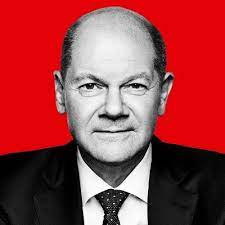 Olaf Scholz | SPD
Olaf Scholz | SPD
We can sit and argue the entire length of a Wagner opera about how much change Scholz is likely to bring about, but it's clear that socialist ideas and policies are popular. The Greens somehow lacked the friendliness exuded by Scholz, with his Charlie Brown-like round head and dimpled cheeks, he spoke of respect for everyone in society, especially those who had been ignored until Corona showed up and taught us all the importance of nurses and supermarket workers. He told us how he personally would pay more tax, like all high earners, and that this extra money would go to fund pension reforms, education, health, infrastructure and the climate crisis. Germany's famously terrible internet needs to be the first thing that any party fixes, which could be where Christian Lindner, the most handsome man in German politics, and his liberal, free-market-loving FDP party could step in and take over. Making him Minister of the Internet could give us all some semblance of connectivity that the rest of the world appears to enjoy daily.
Annalena Baerbock, the Chancellor candidate of the Green party and the only woman in the contest had a truly awful campaign; seeing her party lose a sizeable chunk of their votes in the last few weeks before election day. At the start of the year, the Greens were riding high in the polls, and it looked like an almost forgone conclusion that Germany would have their first ever Green Chancellor. Then a dirty tricks campaign revealed that she had not been completely honest on her CV. As the first person in the history of mankind to ever have made themselves look better than they actually are on a CV, this is, understandably, a truly heinous crime. Unlike the CDU and their mask scandal, Azerbaijan scandal, Andreas Scheuer, the lack of any noticable change in living standards during their 16 years in power, this CV debacle made voters trust Annalena less than a white, middle-class man in a suit. Of the two men running against Annalena, one is currently in charge of the Finance Office, which is, at present, embroiled in one of the biggest financial scandals in decades. The other is a member of a party that has done so little to raise living standards for low income workers in Germany, that 1 in 5 children live in poverty. They were, however, very honest on their CVs, so do we really mind about the starving kids and billions missing in taxes?
 Susanne Henning-Wellsow & Janine Wissler | Die Linke
Susanne Henning-Wellsow & Janine Wissler | Die Linke
On the fringes of the political left are Die LInke. A far-left party that many of the main parties are nervous about working with. It can be argued that going too far left is just as bad as going too far right, and I agree with this sentiment - there are certain players within Die Linke who are too radical and possibly dangerous, but the free-market obsession of the FDP and CDU is also, I would contend, just as dangerous - hence the rising inequality across our planet and those kids who don't have any food. Sadly, there is no equivalent to Marcus Rashford here in Deutschland, so those hungry German kids are just going to have to hope that the market regulates food supplies for them before it's too late. The main bone of contention with Die Linke is their stance on NATO. They want to leave it, disband it and destroy all nuclear weapons. Don't we all? The real question here is do you actually think that you can trust Russia/China/Iran/North Korea/Pakistan/America/UK, etc. The answer to this question is a resounding no. NO!!! You cannot trust any of these countries and their deranged despot leaders (Biden is maybe not as bad as Trump, but he didn't win any votes with his actions in Afghanistan). It's well known that Die LInke is having issues within the party; infighting and disagreements about the NATO question have formed big internal divides, so it is not surprising that they lost a huge number of votes and barely made it into the parliament.
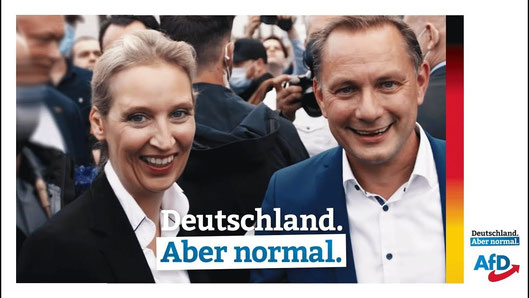 Alice Weidel & Tino Chrupalla | AfD
Alice Weidel & Tino Chrupalla | AfD
Unfortunately, over on the other side, the far-right AfD party, despite losing some votes, managed to garner 10.3% and 83 seats. In Berlin, where I am located, we are surrounded by a sea of far-right, foreigner-hating, anti-maskers, third-reich worshipping Germans who actually put a cross on the ballot for a party whose slogan was "Germany. But normal." Sadly, this isn't even a satirical joke. The far-right party led by a proudly unvaccinated lesbian with a brown wife (true story), is the fifth largest political party in Germany. They have dropped from third place, but even one vote to these violent maniacs is one vote too many as far as I'm concerned.
So, as we wait, hoping that the coalition will be the Ampel (traffic light - SPD+Greens+FDP), is there reason to be hopeful? Well, possibly. Social policies and the environment are the hot topics being discussed in these coalition talks, and if the Greens and the SPD get their policies accepted by the FDP, this can only be a good thing: for the majority and not just for the few. The FDP are, however, notorious for not budging on things like tax hikes for the wealthy, so this could be where the talks fall apart. If the Greens make the tragic decision and form a coalition with the FDP and the CDU, then they should really, really enjoy their last four years in power. If the Twitterverse is to be believed, abandoning their supporters with this costellation of free-market ideaolgues will force all of their voters to desert them for a party with more integrity. Will these politicians, who are about to form one of the most important governments in the world, at a time when we need leaders who are going to push things forward at lightening speed to give us a even a minuscule chance of preventing climate catastrophe, do the right thing and compromise; or will the old order be maintained?

Personally, I would have preferred it if the SPD and the Greens had gotten enough of the votes to not need a third partner, but this was not to be. So, let's hope that the FDP, and in particular, Mr Lindner's ego, don't throw too many spanners in the works. We need quick, lasting change, with the environment and social policies given the utmost attention. Will any of these parties keep their promises or will we be disappointed once again? I'm trying very hard to stay positive, so let's just say that I'm curious and will withhold any judgement until a final decision has been reached.








